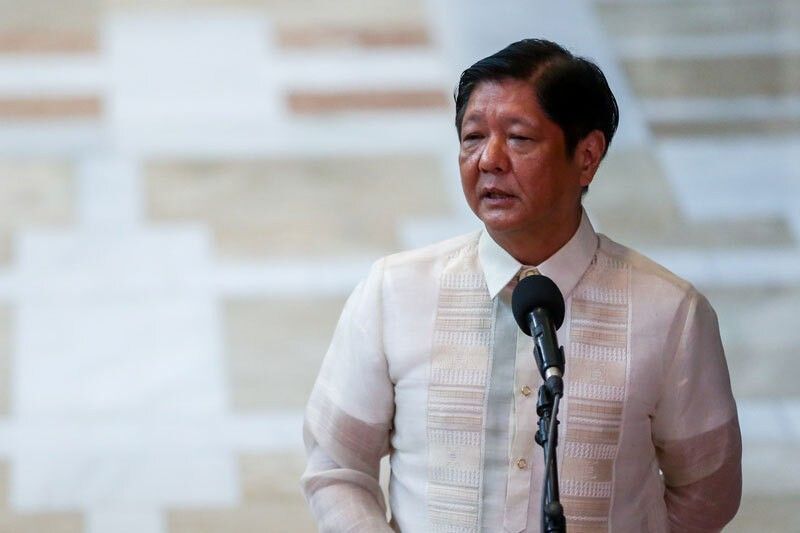Senator urges President Marcos to veto Maharlika bill

MANILA, Philippines — It’s a long shot by any measure, but Senate Minority Leader Aquilino Pimentel III is urging President Marcos to veto the Maharlika Investment Fund (MIF) bill and have it sent back to Congress for rectification.
“The bill, in its current form, is not acceptable. I am calling on the President to exercise his veto power and return the measure to Congress,” Pimentel said yesterday, claiming the bill is “full of opaque provisions, contradictions, ambiguities and loopholes.”
He said various sectors have already expressed concern that the rush to expedite its passage led to discrepancies in its written provisions and that he is certain these would not withstand scrutiny by the Supreme Court (SC).
Earlier, Pimentel specifically drew attention to Sections 50 and 51 of the enrolled bill, which set different time limits for the prosecution of crimes or offenses – one, prescribing a 10-year prescription period and the other, extending it to 20 years.
“As correctly pointed out by Senator Francis Escudero, these flaws that we see today are the consequences of haste and, if I may add to that, an ill-conceived legislation such as the Maharlika Investment Fund,” he said. Pimentel reiterated the importance of returning the bill to Congress to resolve conflicting provisions and add more safeguards for fund protection, transparency and accountability.
He acknowledged that the Senate minority bloc, consisting of himself and Sen. Risa Hontiveros, was outnumbered in their attempt to stop their Senate colleagues from the majority during the voting, but he said that it being questioned before the Supreme Court (SC) would be a different story.
“The MIF can be challenged before the courts, and for those planning to do this, I will make myself available as a source of some facts, information and arguments,” Pimentel stated.
Senate President Juan Miguel Zubiri, however, defended the bill, emphasizing that it underwent meticulous scrutiny and amendments to ensure transparency and accountability. He stressed that the bill is aimed to attract investments, impose integrity safeguards and yield gains for social good.
“We are committed to ensuring the effectiveness of the MIF for the benefit of the country,” Zubiri said. “I take great pride in this version due to the comprehensive safeguards we have implemented. The public no longer needs to worry.”The ratified version of the bill includes strict safeguards for officer selection, rigorous vetting processes and lengthy penal provisions to prevent the misuse of funds.
It also prohibits government-owned and controlled corporations providing social security and health benefits from investing in the Maharlika Investment Corporation.
Additionally, the MIF’s books will undergo special review by the Commission on Audit and be overseen by a Joint Congressional Oversight Committee, an internal as well as an external auditor. ‘Losing battle’ Albay Rep. Edcel Lagman, who has been vocal about his opposition to the MIF, said challenging it in the courts would be a losing battle.
“I am dousing cold water on projected petitions to challenge the constitutionality of the MIF before the high court,” he said yesterday.
While Lagman believes the MIF to be misguided, he does not see any constitutional flaw that would warrant the SC’s judicial review. Moreover, the lawmaker maintained that the SC does not have jurisdiction over matters of congressional wisdom and expediency and cited previous court rulings to that effect. In “unbroken jurisprudence,” the high tribunal has held that “the courts do not involve themselves with or delve into the policy or wisdom of a statute,” Lagman said in a statement.
“The remedy against an unwise or improvident law is to seek its amendment or repeal by the legislature itself,” he added.
Still, Lagman argued that the projected funding of P500 billion for the MIF could be better utilized as budgetary support for basic socio-economic services and infrastructure development.
He expressed concern about investing such a significant amount in lengthy ventures while the country faces a fiscal deficit, high inflation, low human development index ranking and poor gross domestic product per capita.
Lagman said he is against the MIF “for not being seasonable as major negative economic indicators currently pummel the economy.”
BSP stability
Despite concerns raised by critics about the pending contribution of the Bangko Sentral ng Pilipinas (BSP) to the MIF, Finance Secretary Benjamin Diokno gave reassurance that the central bank’s financial stability will not be compromised.
“The BSP’s financial condition now is much better than when its revised charter was being deliberated upon,” Diokno told reporters yesterday. “The BSP was granted additional tools to conduct its primary mandates.”
To prove his point, the former BSP governor said the central bank extended an interest-free P540 billion to the national government to finance its COVID-19 needs at the height of the pandemic. “That is how good BSP’s finances are,” he added.
Under the final MIF bill, the BSP, Land Bank of the Philippines and Development Bank of the Philippines will be major contributors.
Government agencies responsible for social security and public health insurance are prohibited from participating. — Louise Maureen Simeon
- Latest
- Trending



























